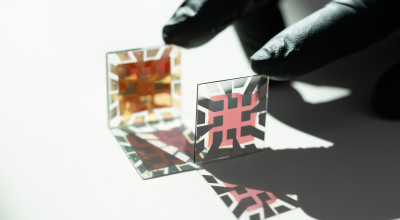As artificial intelligence continues to transform countless areas of society, the Georgia Tech Research Institute (GTRI) is applying it to another critical area: disaster management.
GTRI is leading the development of an integrated artificial intelligence response hub for Southwest Georgia to help communities streamline disaster management and logistics. The hub aims to enhance resilience and response efficiency of these communities, potentially saving lives and reducing economic losses. GTRI is collaborating in this effort with the Southwest Georgia Regional Commission (SWGRC), a regional planning agency that serves 14 counties and 44 cities in Southwest Georgia. The SWGRC focuses on ecosystem building in the areas of manufacturing in food production, manufacturing start-ups, supply chain logistics and workforce development.
“This will be a centralized platform that key stakeholders in Southwest Georgia can use to manage various disruption scenarios,” said GTRI Senior Research Engineer Francisco Valdes, who is leading this project.
This project is one of several initiatives undertaken by Georgia Artificial Intelligence in Manufacturing (Georgia AIM), a $65 million federal grant awarded to Georgia Tech and a coalition of partners across the state, including the SWGRC. Funded through the U.S. Economic Development Administration’s Build Back Better Regional Challenge grants, Georgia AIM works to create equitable adoption of AI across all of Georgia’s manufacturing sectors.

“We are thrilled to have the opportunity to work with the Georgia Tech Research Institute on this project,” said Beka Shiver, who serves as the SWGRC’s economic development and transportation planner. “Our region is prone to floods, tornadoes, hurricanes and drought conditions and these disasters disrupt all aspects of the community when they strike. Ensuring a stable region that can withstand the shocks of disaster through a coordinated effort is the key driver for this project.”
The hub will be powered by an AI-driven large language model (LLM) that utilizes both static knowledge and dynamic information for efficient decision-making. Static knowledge will consist, for instance, of data on past emergency responses and disruption management documents from various cities and counties in the region. This will be complemented by dynamic, real-time data gathered from current events and situations, allowing the system to provide up-to-date, location-specific insights.
GTRI is developing a proof of concept for the platform to utilize radio communication to transmit crucial messages in the event of network disruptions.
“Imagine that you don’t have power or internet. Your FM radio could send digital information as analog sound that your phone could then turn back into a message or image with important information for that particular disruption,” Valdes said.
GTRI is also developing a long-range (LoRa) radio sensor network proof of concept to transmit and receive signals in areas where cellular or internet isn’t available. GTRI intends for the network to monitor local weather patterns, which stakeholders could use to get more local information for more accurate predictions and understanding of potential disruptions in critical infrastructure areas, such as those with hospitals or power plants.
“Ideally, in the long run, we would like to implement these robust communication systems so that we can keep our platform up and running even during power or communication interruptions,” said Valdes.
In Georgia, the economic impact of natural disasters has been significant. According to the National Centers for Environmental Information (NCEI), all disasters from 1980-2024 have cost the state $20 billion to $50 billion. Severe storms had the highest number of events at 67, with $10 billion to $20 billion in damages, but tropical cyclones have caused 42% of the total costs.
In addition to the SWGRC, GTRI is collaborating in this two-year effort with various emergency management agencies, non-governmental organizations, federal agencies, utility companies and the corporate sector. The ultimate goal is to implement the system statewide and nationally.
“Through these grant funds, we can develop this project for our region, but it was paramount that the build out of this platform be made in a manner that any other region or territory could also take the technology and use its framework to suit their needs,” said Shiver.
Writer: Anna Akins
Photos: Sean McNeil
GTRI Communications
Georgia Tech Research Institute
Atlanta, Georgia
The Georgia Tech Research Institute (GTRI) is the nonprofit, applied research division of the Georgia Institute of Technology (Georgia Tech). Founded in 1934 as the Engineering Experiment Station, GTRI has grown to more than 2,900 employees, supporting eight laboratories in over 20 locations around the country and performing more than $940 million of problem-solving research annually for government and industry. GTRI's renowned researchers combine science, engineering, economics, policy, and technical expertise to solve complex problems for the U.S. federal government, state, and industry.



